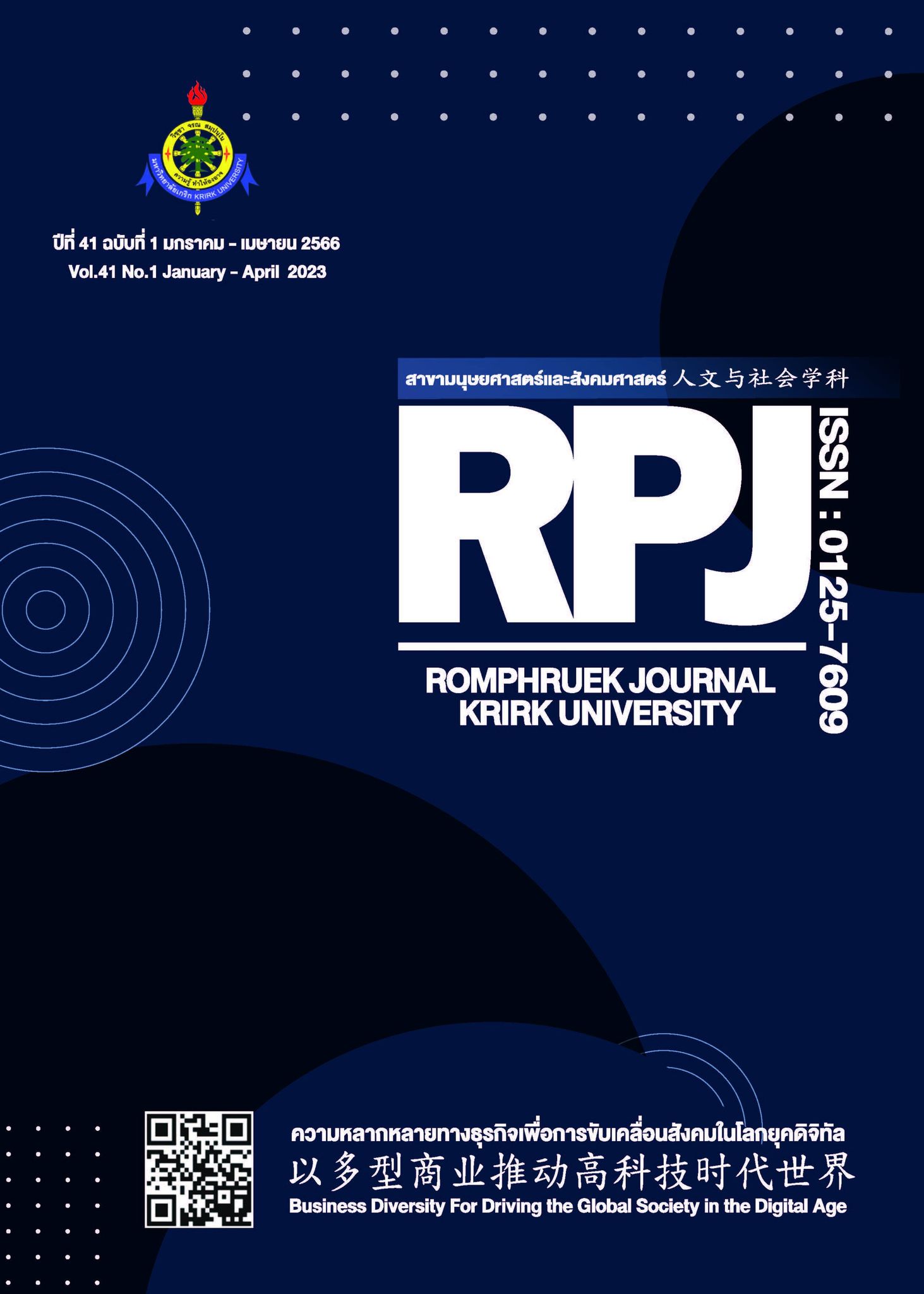The Impact Model of Consumer Rights Safeguard Trigger in The Context of Live Stream E-commerce Grounded research based on the consumer's perspective
Main Article Content
Abstract
Live streaming e-commerce is rapidly growing as a new type of e-commerce model. Simultaneously, consumers face new and unknown issues in which their legitimate rights and interests cannot be guaranteed. This study employs qualitative research methods based on grounded theory, with interviews conducted with 16 users who have had a specific live streaming e-commerce viewing experience. The original records were obtained as textual data, and a theoretical model of the triggering impact of consumer rights protection in the context of live streaming e-commerce was built. In the theoretical model, violations of informed purchases, transaction security, even bargaining, after-sales service, and individual privacy by live streaming e-commerce operators were the objective factors that triggered consumer rights protection behaviors. Furthermore, consumers deviated from supervision rights and perceptual purchases for individual appeals were subjective factors that reduced consumer rights protection demands. The effects of live streaming e-commerce on how operators handle consumer complaints may have a direct impact on consumer rights protection behaviors. By influencing consumers' subjective factors, objective factors can either directly trigger or promote consumer rights protection behaviors. Furthermore, in many cases, it is a combination of multiple factors that triggers consumers' protection of their legitimate rights.
Article Details

This work is licensed under a Creative Commons Attribution-NonCommercial-NoDerivatives 4.0 International License.
Every article published in the Romphruek Journal of the Humanities and Social Sciences is the opinion and point of view of the authors. Thery're not the viewpoint of Krirk University or the editored department. Any part or all of the articles for pablication must be clearly cited.
References
Corbin, J., & Strauss, A. L. (2014). Basics of Qualitative Research : Techniques and Procedures for Developing Grounded Theory. fourth ed. Los Angeles : Sage Publications.
Ezrachi, A., & Stucke, M. E. (2017). Artificial intelligence & collusion : When computersinhibit competition. University of Illinois Law Review, 2017(5), 1781-1796.
Glaser, B. G., & Strauss, A. L. (1967). The discovery of grounded theory : Strategies for qualitative research. Chicago : Aldine Publishing Co.
Heath, H., & Cowley, S. (2004). Developing a grounded theory approach : A comparison of Glaser and Strauss. International Journal of Nursing Studies, 41(2004), 141-150.
Hu, M.Y. Chaudhry, S.S. (2020). Enhancing consumer engagement in e-commerce live streaming via relational bonds. Internet Research, 30(3), 1019-1041.
Kim, D. J., Yim, M.S., Sugumaran, V.,& Rao, H. R. (2016). Web assurance seal services, trust and consumers’ concerns : an investigation of e-commerce transaction intentions across two nations. European Journal of Information Systems, 25(3), 252-273.
Liebers, N., & Schramm, H. (2019). Parasocial interactions and relationships with media Characters–An inventory of 60 years of research. Communication Research Trends, 38(2), 4-31.
Lucille, M. P. (2016). Protecting Brand Image or Gaming the System? Consumer “Gag” Contracts in an Age of Crowdsourced Ratings and Reviews. William and Mary Business Law Review, 7(1), 114-115.
Luo, H., Cheng, S., Zhou, W., Yu, S., & Lin, X. (2021). A Study on the Impact of Linguistic Persuasive Styles on the Sales Volume of Live Streaming Products in Social E-Commerce Environment. Mathematics, 9(13), 1576.
Prince, C. A., Fang, J., Andy, O. A., & Kulbo, N. B. (2021). Customer engagement and purchase intention in live-streaming digital marketing platforms. The Service Industries Journal, 41(11), 767-786.
Steennot, R. (2013). The Right of Withdrawal under the Consumer Rights Directive as a Tool to Protect Consumers Concluding a Distance Contract. Computer Law and Security Review, 29(2), 105-119.
Strauss, A., & Corbin, J. (1990). Basics of qualitative research : Grounded theory procedures and techniques. London : Sage Publications.
Sun, Y.,Shao, X.,Li, X.T., Guo, Y.,& Nie, K. (2019). How live streaming influences purchase intentions in social commerce : An IT affordance perspective. Electronic Commerce Research and Applications, 37(9), 100886.
Wang, Nianxin., Liang, Huigang., Xue,Yajiong., & Ge, Shilun. (2021). Mitigating Information Asymmetry to Achieve Crowdfunding Success : Signaling and Online Communication. Journal of the Association for Information Systems, 22(3), 773–796.
Wayne, R. B. (2019). The Good, the Bad, and the Ugly of Online Reviews : The Trouble with Trolls and a Role for Contract Law after the Consumer Review Fairness Act. Georgia Law Review, 53(2), 603-605.
Wongkitrungrueng, A., & Assarut, N. (2020). The role of live streaming in building consumer trust and engagement with social commerce sellers. Journal of Business Research, 117(C), 543-556.
Zarif, T. (2012). Grounded Theory Method : An Overview. Interdisciplinary Journal of Contemporary Research in Bussiness, 4(5), 969-979.
Zhang, M.,Sun, L.,Qin, F., & Wang, G. A. (2020). E-service quality on live streaming platforms: swift guanxi perspective. Journal of Services Marketing, 35(3), 312-324.
Zhou, F., Jia, W. (2018). How a Retailer’s Website Quality Fosters Relationship Quality : The Mediating Effects of Parasocial Interaction and Psychological Distance. International Journal of Human Computer Interaction, 34(1), 73–83.
Zhu, L.Y., & Liu, N. (2021). Game theoretic analysis of logistics service coordination in a live-streaming e-commerce system. Electronic Commerce Research, 9(2021), 1-39.


